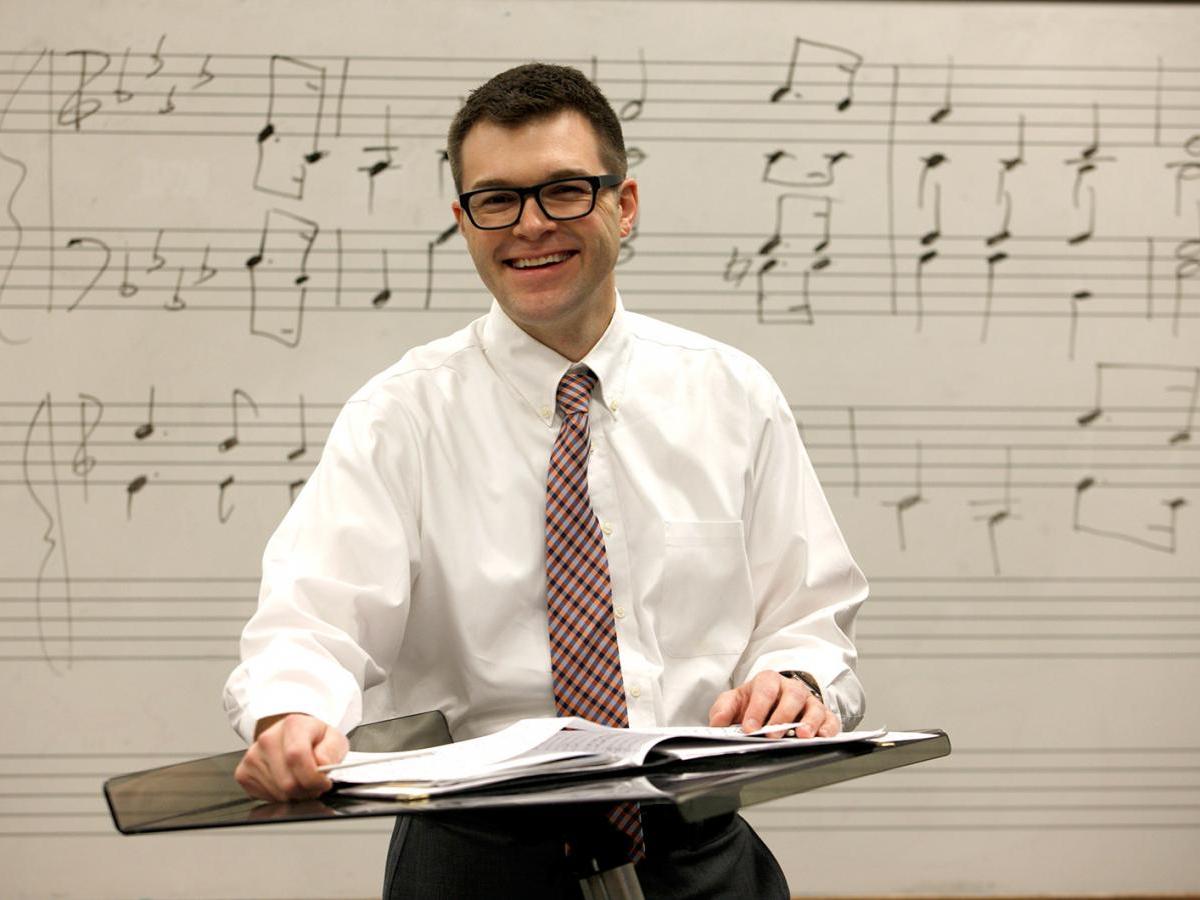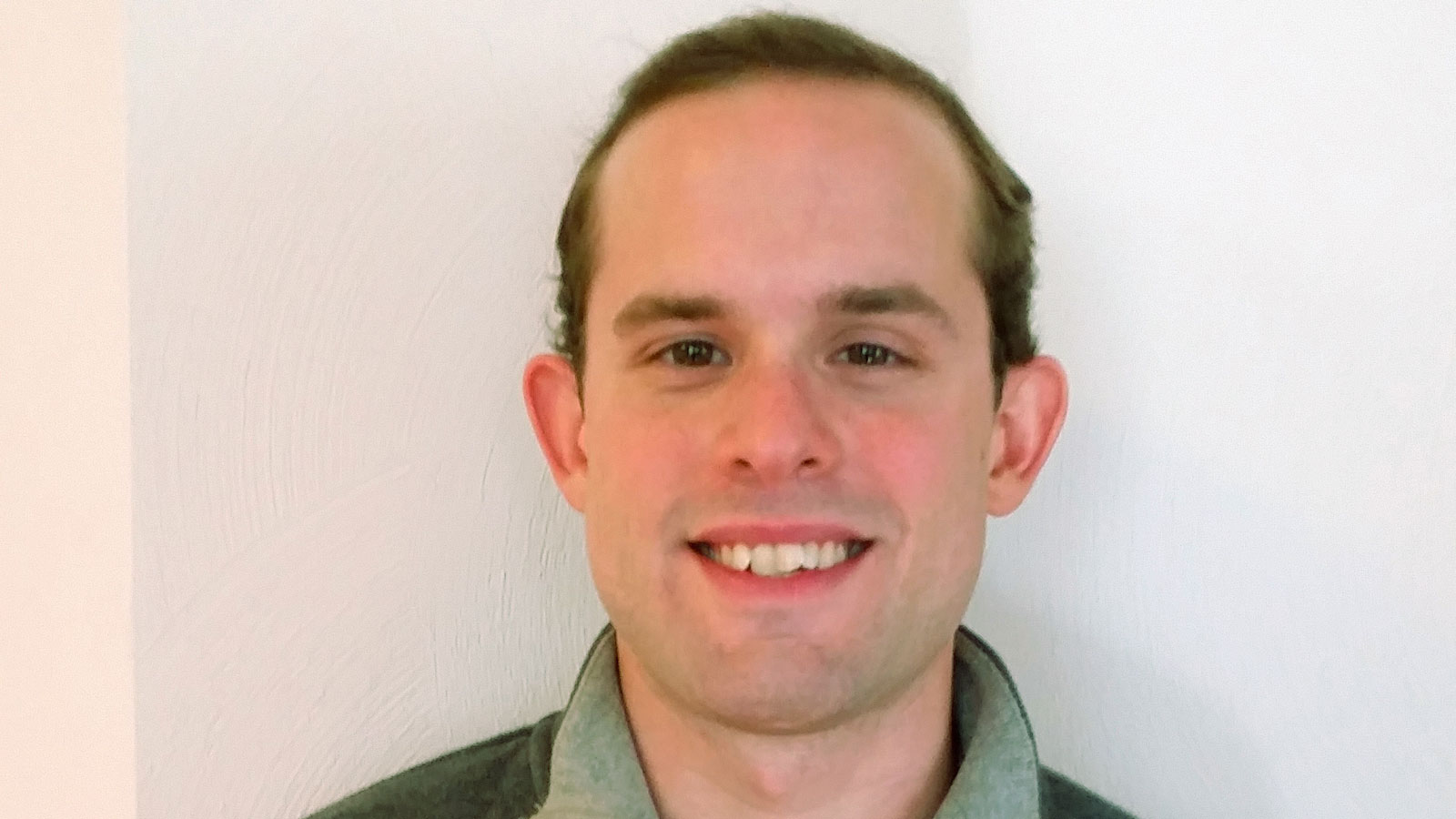
“I don’t know of any other community college in the country that annually performs a fully-staged operetta.”
When auditioning for roles in the arts, performers are aware that they may be waiting a while for their big break. Though he pursued a career as an arts educator, instead of a performer, Michael Sundblad had to wait for his big break as well. The school that was offering his dream job was going to wait another year to fill the position he wanted. His patience was rewarded when he was offered the position the following year and Sundblad began his career as a music professor at Thomas Nelson Community College.
A Chicago native, Sundblad was mid-way through his undergraduate education at North Central College when he decided on a career in music education at the college level. He continued on to Illinois State University, where he received a Master of Music degree in Orchestral Conducting. Sundblad remained in the Chicago area for a few years, working as an adjunct instructor at a few local colleges, until 2007 when he moved south for the position at Thomas Nelson.
Performing arts at Thomas Nelson have grown steadily since 2007. There were stand-alone music classes but no formal degree programs. A play was produced each year by a student club run by a member of the English faculty. Sundblad's task was to teach music and eventually develop a music program. He would go on to do that and so much more. Wanting to give his music students more opportunities to perform, he organized Thomas Nelson's first musical in 2009, "Little Shop of Horrors," co-produced with a now-defunct local theatre company. The show was a success and college officials wanted to create a performing arts program.
Today Thomas Nelson offers two performing arts degrees, Associate of Arts in Liberal Arts: Music and Associate of Arts in Liberal Arts: Theatre Performance. Those programs are planned to become Associate of Fine Arts degrees within the next few semesters. Sundblad has seen the program grow so much, he can only roughly quantify the changes. Dance classes are in the works to be part of the Theatre Performance degree. The choir now sings more complicated pieces and in languages other than English.
One of the primary reasons Sundblad sought employment at the community college level was that he didn't want to be compelled to specialize as a teacher. He wanted to teach classes and conduct performance groups. His role at Thomas Nelson allows him to do that type of generalization. Sundblad currently teaches Music Appreciation for non-majors, the introductory course, Music 101, and the choir course, Music 137, all while serving as the department chair and the conductor for staged operas and musicals.
The department's annual theatre series is Sundblad's pride and joy. For the last four years, the performing arts department has staged three shows a year, a musical in fall, a play in spring and a Gilbert and Sullivan operetta in summer.
"I don't know of any other community college in the country that annually performs a fully-staged operetta," notes Sundblad.
Reflecting on his career at Thomas Nelson, Sundblad is quick to mention how the success of his students is the aspect he's most fulfilled by, even more so than his own triumphs, including the Faculty of the Year Award he received. It amazes him that nearly 100 percent of the students who have successfully completed their degree with a performing arts specialization have been able to follow their chosen path at a four-year institution.
Sundblad is currently continuing his education, pursuing a Doctorate of Musical Arts in Music Education from Boston University. As his thoughts and philosophy to music and education evolve, his primary goals for student success remain the same. He strives to give his Music Appreciation students insight into why historic composers created what they did. As for the actors and musicians in his stage shows, he says, "they'll hone the skills needed to become professional performers or educators."


